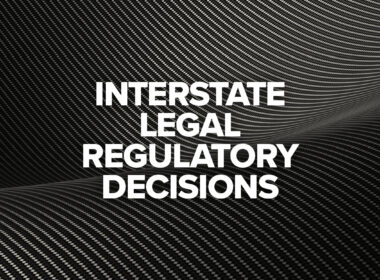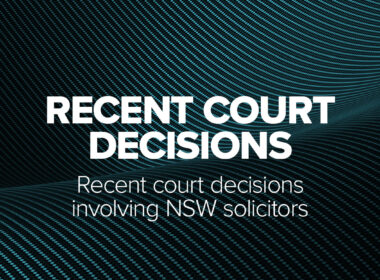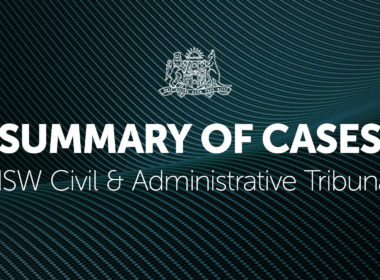The Trust Accounts Department has identified several issues concerning Probates, Letters of Administration and Estates. The purpose of this article is to give you an overview of those issues.
The Trust Accounts Department of the Law Society of NSW has identified several issues concerning Probates, Letters of Administration and Estates. The purpose of this article is to give you an overview of those issues.
In some situations, it may not be necessary to obtain a Grant of Probate or Letters of Administration, for example:
i) Where the estate is a small estate and the asset holder is prepared to transmit the asset without a Grant of Probate or Letters of Administration such as, small bank accounts under $50,000. Banks will in general release those funds on provision of a will, death certificate and an indemnity from the executor.
A power of attorney does not survive death. On the death of the person on whose behalf that power of attorney is held, that authority ceases. The question is often raised as to who has power to act on the death of a person. The answer is found in Section 61 Probate and Administration Act 1898 (NSW), which is headed:
“Property of deceased to vest in NSW Trustee” and states:
“From and after the decease of any person dying testate or intestate, and until probate, or administration, or an order to collect is granted in respect of the deceased person’s estate, the real and personal estate of such deceased person shall be deemed to be vested in the NSW Trustee ………”
From the date of death, the assets of a deceased person are notionally (deemed) vested in the New South Wales Trustee pending a Grant of Probate or Letters of Administration or Court Order.
Section 44 of the Probate and Administration Act 1898 (NSW) provides that upon the Grant of Probate of the will, all property of the deceased (both real estate and personal property) within NSW, shall as from the date of death be vested in the executor named in Probate. It follows that the proposed executor is not legally authorised to deal with those assets, until Grant of Probate or Letters of Administration.
Letters of Administration is a Court Order made by the Supreme Court of New South Wales which allows the administrator (the person who is appointed by the court) to distribute the assets of the deceased who died without a valid will (intestate), and left assets in New South Wales.
The Court may grant Administration to:
· the spouse of the deceased;
· one or more of the next of kin; and/or
· the spouse jointly with other relatives.
Generally only persons who are entitled to a share of the estate are entitled to apply for administration.
The Supreme Court Rules 1970, Part 78 Rule 16 governs the timeframe for lodging Probate or Letters of Administration. If an application for Probate/Letters of Administration is filed after 6 months from the date of death of the deceased, an explanation must be given to the court accounting for the delay. This can be done by either including an explanation in the affidavit of executor or lodging a separate Affidavit of Delay.
There have been instances where a solicitor has taken his/her fees prior to the grant of Probate or Letters of Administration. The explanation sometimes given is that “I have done the work I am entitled to be paid.” Solicitors should be mindful of the following matters in taking their costs earlier than the law allows:
i) Their work has not been completed until Probate or Letters of Administration is granted. The Supreme Court could issue requisitions or reject the application for Probate or Letters of Administration.
ii) The executor has no authority to authorise payment of the account until the Grant of Probate or Letters of Administration is ordered by the Court.
Fees for Grant of Probate/Letters of Administration are regulated by Schedule 3 Legal Profession Uniform Law Application Regulation 2015. The regulated cost for Probate/Letters of Administration matters refers only to professional services rendered by a law practice for obtaining for the first time a Grant of Probate or Letters of Administration, or resealing of Probate or Letters of Administration, including obtaining any grant and resealing after first receiving instructions to uplift documents issued by the Supreme Court of New South Wales . The professional services covered by the regulated cost include:
i) instructions on obtaining a Grant of Probate or Letters of Administration; ·
ii) attendance to verify details of assets supplied by the Executor/Administrator (where required);
iii) preparing all Supreme Court documents; ·
iv) attendance on Executor/Administrator to sign documents; ·
v) lodging and uplifting documents;
vi) answering requisitions; and·
vii) perusing Grant and advising Executor/Administrator.
Practitioners are entitled to increase fees by 10 per cent if they are registered for GST. It is not possible to contract out of these fixed costs, although practitioners may choose to charge less than the amount of the fixed cost.
If assets of the deceased were jointly owned as joint tenants (that is where the co-owners did not own distinct portions of the property i.e .no person has a separate share), if on the death of one of the joint owners (or tenants) then the property automatically passes to the remaining joint tenant or tenants. The joint tenant asset is disclosed on the Probate but does not form part of the Estate of the deceased. Practitioners have attempted to take regulated fees on the disclosed value of assets held as joint tenants. This is incorrect and practitioners are not permitted to do so.
If, however a share of real estate is owned by the deceased as tenants in common with someone else, a Grant of Probate/Letters of Administration will be required in order to deal with the asset. Superannuation does not automatically become an asset of the Estate. Passing of Superannuation will either be determined by: a binding death benefit nomination; the discretion of the fund’s trustee; or the rules of the Superannuation fund.
When a binding death benefit nomination is executed in a Superannuation Policy, proceeds of that policy will pass directly to the nominated beneficiary and do not form part of the assets of the Estate. If there is no binding nomination with the Superannuation fund, the trustee of the Superannuation fund can decide how and to whom the benefit will be paid. Depending on the Superannuation fund and their rules and regulations, the trustee of the Superannuation fund may pay the Superannuation to the deceased’s estate enabling the Executor to distribute the funds in accordance with the Will.
During the administration of an estate, additional assets may be identified. If the practitioner intends to take his/her fees on the additional assets those assets must be disclosed to the Supreme Court of New South Wales, this is done by way of additional affidavit. Practitioners are not permitted to take their regulated fees on the realised value of assets, only on disclosed assets and the values attributed to them in the Probate/Letters of Administration. Where a Solicitor is appointed executor of an estate, on occasions the will may specify he/she is entitled to take a commission in addition to the legal fees charged. In that event payment of a commission may be authorised by the Court on application by the executor on the filing and passing of accounts in the estate or by agreement of all the beneficiaries provided they are of age and not subject to any legal disability. That consent must be informed consent.
Section 86 of the Probate and Administration Act 1898 (NSW) provides: The Court may allow out of the assets of any deceased person to the deceased person’s executor, administrator, or trustee for the time being, in passing the accounts relating to the estate of the deceased person, such commission or percentage for the executor’s, administrator’s or trustee’s pains and trouble as is just and reasonable, and subject to such notices (if any) as the Court may direct.
In a recent New South Wales Civil and Administrative Tribunal case , Council of the Law Society of New South Wales v Haseldine [2017] NSWCATOD 156, it was held that the power of the Court with respect to the commission remuneration of executors is not exclusive. It was accepted that the beneficiaries and trustee all being sui juris (of age, independent) and in unanimous agreement as to payment and the applicable rate, the executor may be remunerated for his or her “pains and trouble” other than by way of an application under section 86 Probate and Administrative Act 1898 (NSW)
In accordance with the provisions of Section 93 Succession Act 2006, following Probate/Letters of Administration being obtained, a legal representative of an estate of a deceased person may distribute the property in the estate if a notice has been published on the NSW Online Registry website that the legal representative intends to distribute the assets of the estate in not less than 30 days after the notice is given and pay only those creditors who have given notice. Provided the legal representative has waited at least 30 days to distribute the estate from the date of publication of notice, and at least 6 months has elapsed since the date of death, then the legal representative may then pay the creditors and distribute the estate to the beneficiaries.
A legal representative who distributes property of the estate of a deceased person and complies with the aforementioned requirements is not liable in respect of that distribution to any person who was an applicant for a family provision order affecting the estate if the legal representative did not have notice at the time of the distribution of the application.
A Grant of Probate or Letters of Administration will usually be applied for in the appropriate Court of the state or country where the deceased person was residing when they died, which will under normal circumstances be the place where most of the deceased’s assets that will be required to be collected and distributed are situated. In Australian states and territories, the appropriate Court is the Supreme Court of the relevant state or territory. If a deceased person owned assets in more than one country, it may be necessary to apply for a Grant in each location where assets are situated. However, if a deceased had assets in different states of Australia or in certain countries, namely Commonwealth countries where the Queen is the Head of State, then it is possible to have a Grant issued by a Court in one jurisdiction recognised in another state or country. This process of recognising the Grant made in the other state or country is described as resealing the Grant. In New South Wales resealing of Grants is permitted under section 107 of the Probate and Administration Act 1898 (NSW). Once resealed by the Supreme Court of New South Wales, the original Grant will have the same effect and same operation in New South Wales as the original Grant.




